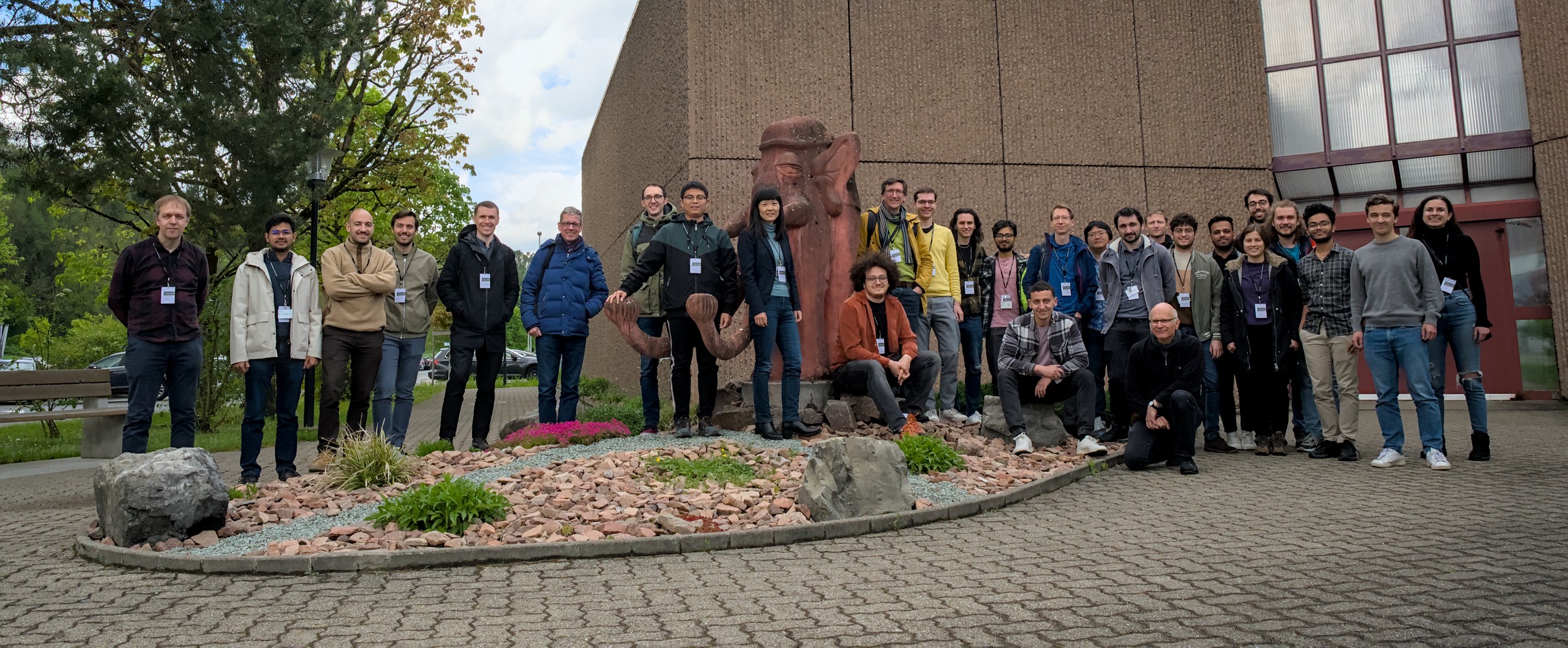Transition Metal Oxides (TMOs) are known for their diverse and multifaceted physical behaviors, intricately linked to the spin and orbital configurations of transition metal d-states and their dynamic interaction with the crystal lattice [1]. A powerful strategy to modify the physical properties of TMOs originates from their structural flexibility, enabling the construction of heterostructures. Specifically, it will be exhibited that manipulating the electronic structures through TMO-engineered heterostructures [2] is a foundational step toward utilizing those materials in novel devices.
This lecture delves into significant revelations from Angle-Resolved Photoemission Spectroscopy (ARPES) concerning two topics:
(I) Low-dimensional electronic systems (LDES) and,
(II) Metal-Insulator Transition (MIT).
The first topic will concern how LDES in SrTiO3 (STO) is influenced by the crystal structure, orbital ordering, and defects [3-5]. The second part of the lecture will specifically discuss how ARPES studies on RENiO3 have shed light on the underlying mechanisms driving the MIT in complex oxides. [3]. Further, it will be examined how establishing the novel ferromagnetic order in thin NdNiO3 (NNO) films, accomplished through heterostructures containing a magnetic layer, profoundly mitigates the MIT [4]. This example illustrates the capability to utilize magnetic interactions to influence the electronic states of TMOs.
The ARPES studies, in general, highlighted and emphasized the versatility of TMOs as quantum materials for future applications in advanced technology.
References
1. Yoshinori Tokura, Correlated-Electron Physics in Transition-Metal Oxides, Physics Today 56 (7), 50–55 (2003).
2. Pavlo Zubko, Stefano Gariglio, Marc Gabay, Philippe Ghosez, Jean-Marc Triscone, Interface physics in complex oxide heterostructures, Annu. Rev. Condens. Matter Phys. 2:141–65 (2011).
3. NC Plumb, M Salluzzo, E Razzoli, Martin Månsson, M Falub, J Krempasky, CE Matt, J Chang, M Schulte, J Braun, H Ebert, J Minár, B Delley, K-J Zhou, T Schmitt, M Shi, Joël Mesot, L Patthey, M Radović, Mixed Dimensionality of Confined Conducting Electrons in the Surface Region of SrTiO3, Physical review letters 113 (8), 086801 (2014).
4. AF Santander-Syro, F Fortuna, C Bareille, TC Rödel, G Landolt, NC Plumb, JH Dil, M Radović, Giant spin splitting of the two-dimensional electron gas at the surface of SrTiO3, Nature materials 13 (12), 1085-1090 (2014).
5. Eduardo B Guedes, Stefan Muff, Walber H Brito, Marco Caputo, Hang Li, Nicholas C Plumb, J Hugo Dil, Milan Radović, Universal Structural Influence on the 2D Electron Gas at SrTiO3 Surfaces, Advanced Science 8 (22), 2100602 (2021).
6. R. S. Dhaka, Tanmoy Das, N. C. Plumb, Z. Ristic, W. Kong, C. E. Matt, N. Xu, Kapildeb Dolui, E. Razzoli, M. Medarde, L. Patthey, M. Shi, M. Radović, and Joël Mesot, Tuning the metal-insulator transition in NdNiO3 heterostructures via Fermi surface instability and spin fluctuations, Phys. Rev. B 92, 035127 (2015).
7. M, Caputo, Z. Ristic, R. S. Dhaka, T. Das, Z. Wang, C. E. Matt, N. C. Plumb, E. B. Guedes, J. Jandke, M. Naamneh, A. Zakharova, M. Medarde, M. Shi, L. Patthey, J. Mesot, C. Piamonteze, M. Radovic, Proximity‐Induced Novel Ferromagnetism Accompanied with Resolute Metallicity in NdNiO3 Heterostructure, Advanced Science 8, 2101516 (2021).



